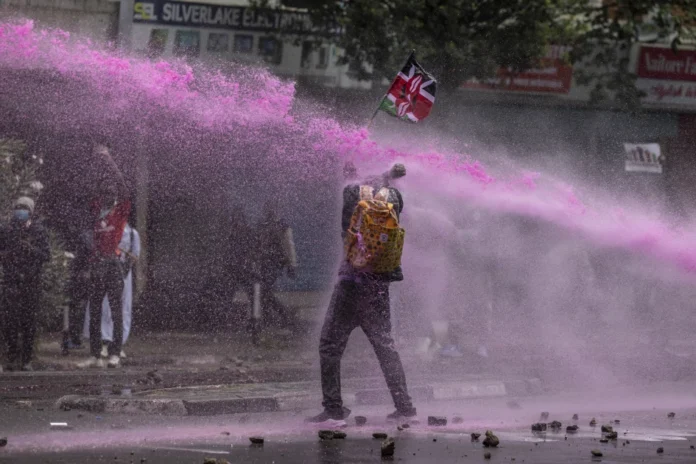
The Kenyan government is once again under fire following the introduction of a controversial Bill that critics say seeks to curtail constitutional freedoms, particularly the right to peaceful protest.
The Public Order Amendment Bill, 2025, introduced by Nairobi Woman Representative Esther Passaris, proposes sweeping changes to the Public Order Act (Cap. 56). These include redefining public meetings and processions, creating restricted zones for demonstrations, including a 100-meter radius around Parliament, State House, and court premises, and granting the Interior Cabinet Secretary powers to designate where protests may or may not occur.
Passaris, while appearing before the Administration and Internal Security Committee, defended the Bill as a means to prevent the violence and destruction witnessed in previous demonstrations. “We need order. We need structure,” she said, referencing the June 25 protests that were marred by incidents of arson, looting, and property damage.
However, critics argue that the Bill mirrors the failed Assembly and Demonstrations Bill, 2024, and threatens to erode fundamental rights protected under Article 37 of the Constitution, which guarantees every citizen the right to assemble, demonstrate, picket, and petition peacefully and unarmed.
Legal experts, civil society groups, and opposition lawmakers have condemned the Bill as an unconstitutional overreach aimed at silencing dissent in a country increasingly rocked by public outrage over corruption, poor governance, and lack of accountability.
“This Bill is not about safety; it’s about suppressing voices critical of the government,” said a legal analyst. “It attempts to rewrite Article 37 by imposing disproportionate restrictions on peaceful assembly.”
The Bill proposes penalties of up to Ksh100,000 or three months in prison, or both, for violators, raising further concerns over criminalization of protest. It also seeks to shift control of demonstration venues to the national government, in coordination with counties, effectively centralizing power over a right that the Constitution already safeguards.
Protesters have frequently accused security forces of brutality, unlawful arrests, and even abductions, claims that have gone largely unaddressed. Despite this, public demonstrations have continued to grow, highlighting deep-rooted frustration with the Kenya Kwanza administration.
Kenya’s 2010 Constitution and international human rights treaties maintain that limitations to rights like assembly must be reasonable, proportionate, and necessary in a democratic society. Chapter 58 of the National Police Service Standing Orders also instructs officers to respect civil liberties and use minimal force.
While the government blames protesters for past violence, demonstrators contend that infiltrators, allegedly with state backing, are responsible for the chaos. The Bill, critics say, punishes the public for failures of state security and oversight.
As the Bill moves through Parliament, it is expected to face stiff resistance both inside and outside the House. For many, it symbolizes a growing pattern of legislative attempts to shrink civic space in Kenya, at a time when public participation and protest remain vital tools for accountability.
Written By Rodney Mbua


















